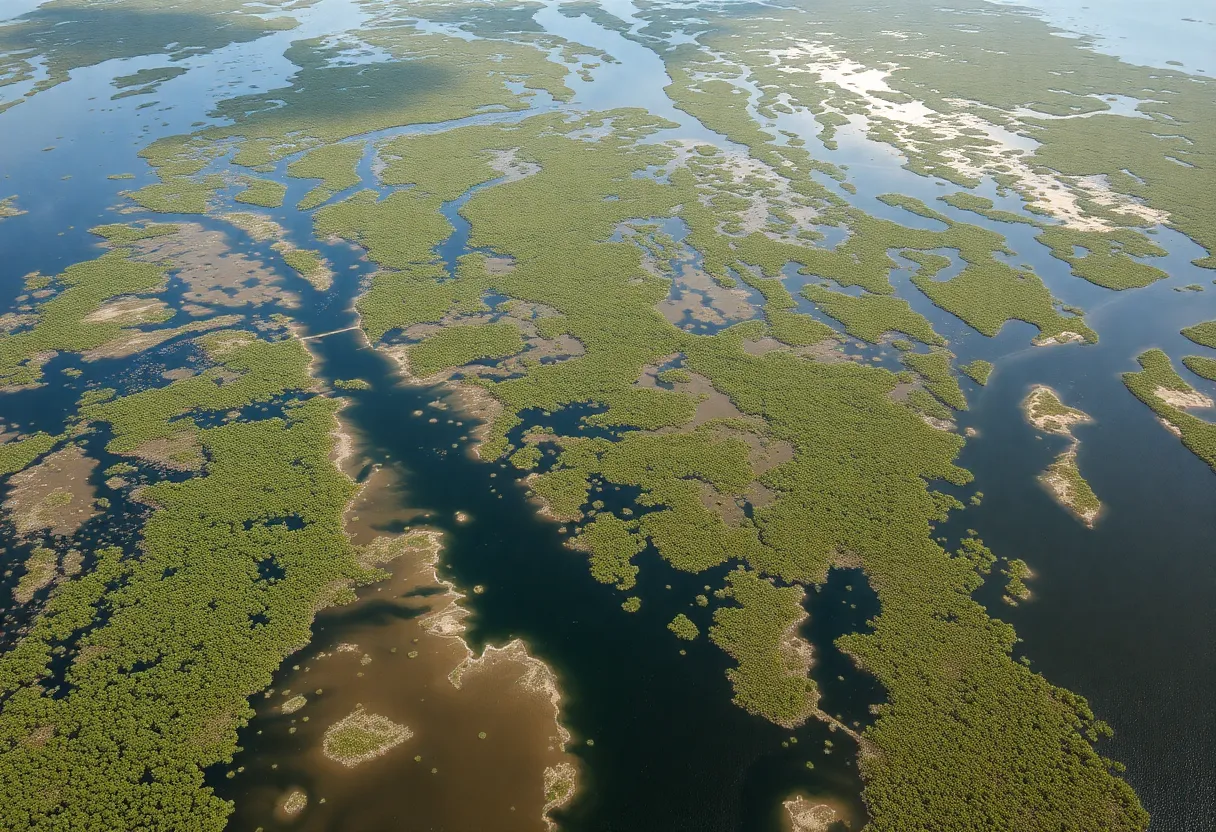News Summary
In a landmark ruling, a jury has mandated Chevron to pay $744.6 million for the restoration of coastal wetlands in Louisiana. This decision follows a lengthy legal battle, addressing violations by Chevron’s subsidiary, Texaco, over decades. Environmental experts highlighted the company’s failure to comply with best practices, contributing to the significant degradation of vital wetlands. The case may have broader implications, as it sets a precedent for future environmental restoration lawsuits against oil companies operating in Louisiana.
Plaquemines Parish, Louisiana – A jury has ordered Chevron to pay $744.6 million for the restoration of coastal wetlands in a landmark case regarding environmental damage linked to the company’s operations over several decades. This ruling comes after an intense legal battle and marks the conclusion of the first trial among the 42 lawsuits filed against Chevron related to environmental issues since 2013.
The jury’s decision is significant as it addresses violations of state coastal resource regulations by Chevron’s subsidiary, Texaco, which failed to restore wetlands affected by oil extraction activities. Initially, Plaquemines Parish sought damages totaling $2.6 billion in connection with pollution and the loss of wetlands.
Environmental experts presented testimony revealing that Chevron had not adhered to best environmental practices dating back to the 1940s. The company’s activities, including dredging canals, drilling oil wells, and discharging billions of gallons of hazardous wastewater, have contributed to extensive degradation of Louisiana’s coastal marshes.
Louisiana is home to some of the most critically endangered environments in the U.S., with approximately 25% of its land lost from 1932 to 2016. The U.S. Geological Survey reported that the state loses wetlands faster than any other state in the nation combined, and projections indicate a potential loss of an additional 3,000 square miles over the next 50 years if trends continue.
Legal Implications and Future Cases
Chevron plans to appeal the jury’s decision, which could have broader implications for other ongoing lawsuits against oil companies operating in Louisiana. The outcome of this case is being watched closely as it may influence how courts handle similar environmental restoration lawsuits moving forward.
Central to this case are regulations requiring that oil and gas production sites be returned to their original condition once operations cease. The legal framework supports the notion that companies must take accountability for their environmental impact, which has been a point of contention throughout the proceedings.
Further complicating the situation, several attorney generals from seven states have submitted briefs advocating for similar cases to be heard in federal court, a position backed by the U.S. Solicitor General during the Trump administration. This federal stance contrasts with local officials, including Governor Jeff Landry and Attorney General Liz Murrill, who argue for the case to remain in state court, emphasizing the importance of protecting the coastal community and its way of life.
The Context of Coastal Wetland Loss
The environmental degradation of Louisiana’s coastal wetlands poses a significant threat not only to the ecosystem but also to the local communities that rely on these areas for their livelihoods. Wetlands provide essential functions, such as flood protection, habitat for wildlife, and water purification. The health of these ecosystems is critical for the continued survival of numerous species and the stability of the communities surrounding them.
The ongoing loss of these wetlands has raised alarms among scientists and environmentalists alike, urging stronger enforcement of regulations and accountability for companies like Chevron. As the state grapples with the implications of climate change and industrial activity, the outcomes of cases like this one will likely play a crucial role in shaping future environmental policies and regulations in Louisiana.
Overall, the recent jury ruling against Chevron indicates a growing recognition of the need for environmental restoration and the responsibility that companies have towards the ecosystems they impact. The resolution of this first trial may serve as a precedent as other lawsuits against oil and gas companies continue to unfold in Louisiana’s courts.
Deeper Dive: News & Info About This Topic
- NOLA: Trump, Chevron, and the Supreme Court
- Wikipedia: Louisiana Wetlands
- Akin Gump: Louisiana Verdict Against Chevron
- Google Search: Chevron Louisiana wetlands lawsuit
- Smart Water Magazine: Chevron Ordered to Pay
- Encyclopedia Britannica: Wetland
- The Guardian: Chevron Louisiana Wetlands Damages Case
- Google News: Chevron Louisiana wetlands damages
- Reuters: Chevron to Pay $740 Million
- Google Scholar: Chevron Louisiana wetlands
- EcoWatch: Chevron Louisiana Lawsuit
- LA Illuminator: Chevron Case Coverage

Author: STAFF HERE NEWORLEANS WRITER
The NEW ORLEANS STAFF WRITER represents the experienced team at HERENewOrleans.com, your go-to source for actionable local news and information in New Orleans, Orleans Parish, and beyond. Specializing in "news you can use," we cover essential topics like product reviews for personal and business needs, local business directories, politics, real estate trends, neighborhood insights, and state news affecting the area—with deep expertise drawn from years of dedicated reporting and strong community input, including local press releases and business updates. We deliver top reporting on high-value events such as French Quarter Festival, New Orleans Jazz & Heritage Festival, and Essence Music Festival. Our coverage extends to key organizations like the New Orleans Chamber of Commerce and Greater New Orleans, Inc., plus leading businesses in energy, healthcare, and education that power the local economy such as Entergy, Ochsner Health, and Tulane University. As part of the broader HERE network, including HEREShreveport.com, we provide comprehensive, credible insights into Louisiana's dynamic landscape.

